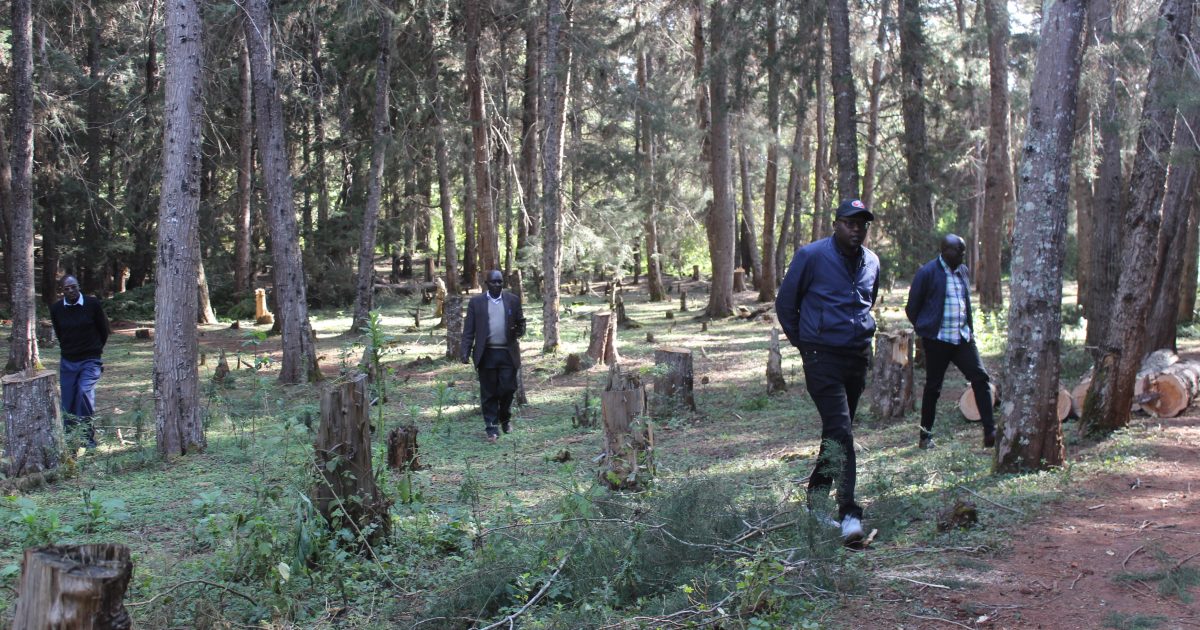The County of Elgeyo Marakwet has dropped from the second position nationally among the counties with the highest forest cover to the 5th position, following the reduction of its forest cover from 37% to 29%.
The county executive for environment Joseph Lagat expressed concern over the drop, which he termed as significant noting that the county is a major source of water being home to one of the major water towers in the country (Cherangany hills).
Speaking during an environment committee meeting chaired by County Commissioner John Korir, the CEC said a major challenge facing the county was ensuring that trees planted survive to maturity.
The meeting was convened to enforce the presidential directive to enhance national tree coverage from the current 12% to 30% by growing 15 billion trees by the year 2030, with each location expected to plant 3000 trees.
The county conservator Benjamin Kore attributed the drop in forest cover to encroachment saying most of the forest land had been turned into settlement areas.
Kore added that grazing of animals in government forests was another challenge facing the county saying most of the seedlings planted are destroyed by livestock.
The conservator said from January next year, no one will be allowed to supply schools with firewood from gazzeted forests, but instead they will be expected to get the same from individual farmers.
“The move is aimed at encouraging individual farmers to benefit from their trees and thus plant more,” Kore said.
The conservator called on all institutions to each have their own nurseries, which will supply them with seedlings to reduce pressure on the KFS.
The meeting resolved to start planting trees along catchment areas during this dry season, where they can be protected by the Kenya Forest Service.
Members also resolved to plant indigenous trees along the catchment areas, while controlling the planting of eucalyptus, which they said while they mature fast, they have adverse effects on the environment.
The meeting also called on farmers to be sensitized on the need to plant trees on their farms and especially fruit trees, which will also earn them an income.
By Alice Wanjiru





